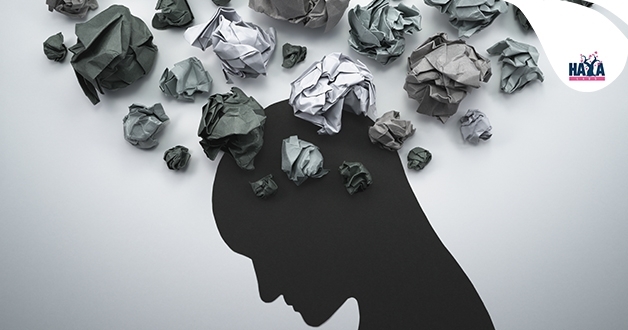
Anxiety, insomnia, and panic - how to get rid of them in a healthy way?
0
1534
The rapid heartbeat, the feeling of dyspnea and the loss of control prevent a person from enjoying life, spending his / her time and success in the activities and areas in which he/she wants to realize - the profession, the partnership, the parenthood.
In addition, these conditions are often combined with insomnia, which further exacerbates the nervous system and increases internal tension. After a long period of great anxiety, insomnia, and distress, some people feel total physical and mental exhaustion, and they may experience depression. But there is no need to stay in the "prison" of your own anxiety and fear. Freedom is achieved by changing some patterns of thinking and lifestyle.
The causes of severe anxiety, panic and insomnia may vary from person to person, but there are some universal principles that would help everyone to begin a healthy change.
Principles for maintaining emotional balance and dealing with states of anxiety and fear
Get to know your anxieties and fears.
What provoked them? Are there real dangers at the moment or negative ideas create them? Many children have grown up with anxious parents who have been accustomed to "catastrophizing" the events of life and turning normal life challenges into exaggerated problems accompanied by a sense of complete loss of control over life.
These children are then often old enough to worry excessively and not to believe in their own ability to cope with the challenges, that is, they as well as their parents develop a vulnerability pattern. And instead of directing their energy to find solutions to real problems, they waste their energy in unnecessary worries provoked by negative ideas.
If you recognize these people, you need to develop a better ability for objective judgment of situations and to build greater faith in your own skills to deal with challenges and find good solutions.
The more you try to "fight" with fear or "flee" from it, the more you conquer.
Watch your senses with curiosity without losing in fear, but without feeding it with negative thoughts. Where do you feel the fear in your body? Is that the emotional state you are experiencing at the moment, which situation in the past reminds you of?
You will realize that often your "inner child" is the part of you who feels afraid because he has experienced childhood situations that have frightened him, and now he is looking for ways to prevent such situations from constantly trying to predict possible "dangers" to avoid being surprised again as unpleasant as before.
But this is the immature part of you, your "inner child" that holds the memories of all the emotional states you have experienced as a child.
Now, however, you also have a mature part in yourself - an "inner parent", as it is called in psychology, and this mature part can take care of the comforting of your inner child and the successful coping with different life situations.
Fear is part of you, but it's just one part. Do not identify with fear.
Give him the right to go through you as a flash through a lightning rod and "ground". Its intensity will decrease.
You will see that when you stop running away from fear, you will feel an inner strength. Know that you have the resources to learn from life, from your fear, including, and become stronger.
read more
Release the scheme of perfectionism. Many of the highly anxious individuals who suffer from insomnia, constant nervous tension and explosion are perfectionists. To want to be very good at what you are doing and to work on your perfection is one thing, but not allowing yourself to be mistaken in the process of learning is quite different.
Every extreme is harmful. This also includes excessive self-criticism. If one learns from his mistakes, I will not repeat them, and this is an exceptional success in his own right. But not allowing the possibility of error stops development and creates unbearable tensions for man and others.
Love yourself - a phrase that is often repeated and which, if it is really applied every day, will lead to a quality change in a person's life, to a great positive change.
A valuable addition to the phrase - Love yourself in a healthy way! Because for some people to love themselves means to catch on to the easiest and most familiar thing to avoid unpleasant emotions - alcohol, food overeating, "virtual escape" in any computer game, taking some pharmaceutical remedy to relieve this condition.
This is not a love affair because it does not solve the problems and does not lead to a lasting, positive change.
Love enough to get informed about healthy, effective, durable and safe solutions.
Love yourself enough to put them into practice in your everyday life.
By caring for yourself, you also care for your loved ones.
Give them a solid example and help them build good habits..


